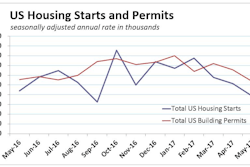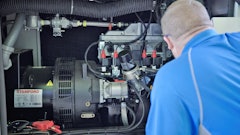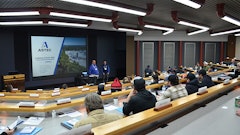Time is money, but taxing based on distance could be a better payoff for funding roads, according to fresh research, led in part by a University of Houston economist.
A federal tax on vehicle miles traveled, as opposed to a per-gallon tax on gasoline, could raise money for the Highway Trust Fund and improve society, to the tune of a 20 percent increase in social welfare, concluded the Brookings Institution’s Clifford Winston, the University of Arizona’s Ashley Langer, and the University of Houston’s Vikram Maheshri, in a study published in the Journal of Public Economics.
“Our findings therefore support the states’ planning and implementation of experiments that charge participants a (vehicle miles traveled) tax and potentially replace their gasoline tax with it, and they support the federal government implementing a VMT tax instead of raising the federal gasoline tax,” the authors wrote, in a statement released by Brookings, a Washington-based think tank.
A number of states have toyed with charging drivers based on distance driven as opposed to gas consumption. As cars and small trucks have increased in fuel efficiency, the 18.4-cent tax on a gallon of fuel has given federal officials less buying power despite increases in driving. The tax hasn’t changed since 1993, which also means the tax hasn’t kept up with inflation.
As a result, nearly every federal agency and researcher that has studied the gas tax has said it already is failing to keep up with highway funding needs and will be largely insolvent within a decade.
A VMT tax, meanwhile, would lead many drivers to change their habits and would better charge people for their use of the roads, compared to a similar hike in gasoline taxes.
“Given the base case that fuel economy has improved 40 percent under current automobile taxation policy, we find that motorists' vehicle miles traveled would decrease 3.5 billion miles more under a new VMT tax than they would under an increase in the gasoline tax,” the authors wrote.
As a result, when a host of factors are considered, the study’s authors found a VMT tax that raised $55 billion would have an economic effect 20 greater than a per-gallon fuel tax by changing driving demands and improving people’s quality of life while still raising money for highway needs.
Download the full study here.



![Building Angled Sm Edit 6050b8d213f1b[1]](https://img.forconstructionpros.com/mindful/acbm/workspaces/default/uploads/2025/09/building-angled-sm-edit6050b8d213f1b1.Ygq5aAos3b.png?auto=format%2Ccompress&crop=focalpoint&fit=crop&fp-x=0.53&fp-y=0.23&fp-z=2&h=100&q=70&w=100)







![Building Angled Sm Edit 6050b8d213f1b[1]](https://img.forconstructionpros.com/mindful/acbm/workspaces/default/uploads/2025/09/building-angled-sm-edit6050b8d213f1b1.Ygq5aAos3b.png?ar=16%3A9&auto=format%2Ccompress&crop=focalpoint&fit=crop&fp-x=0.53&fp-y=0.23&fp-z=2&h=135&q=70&w=240)







